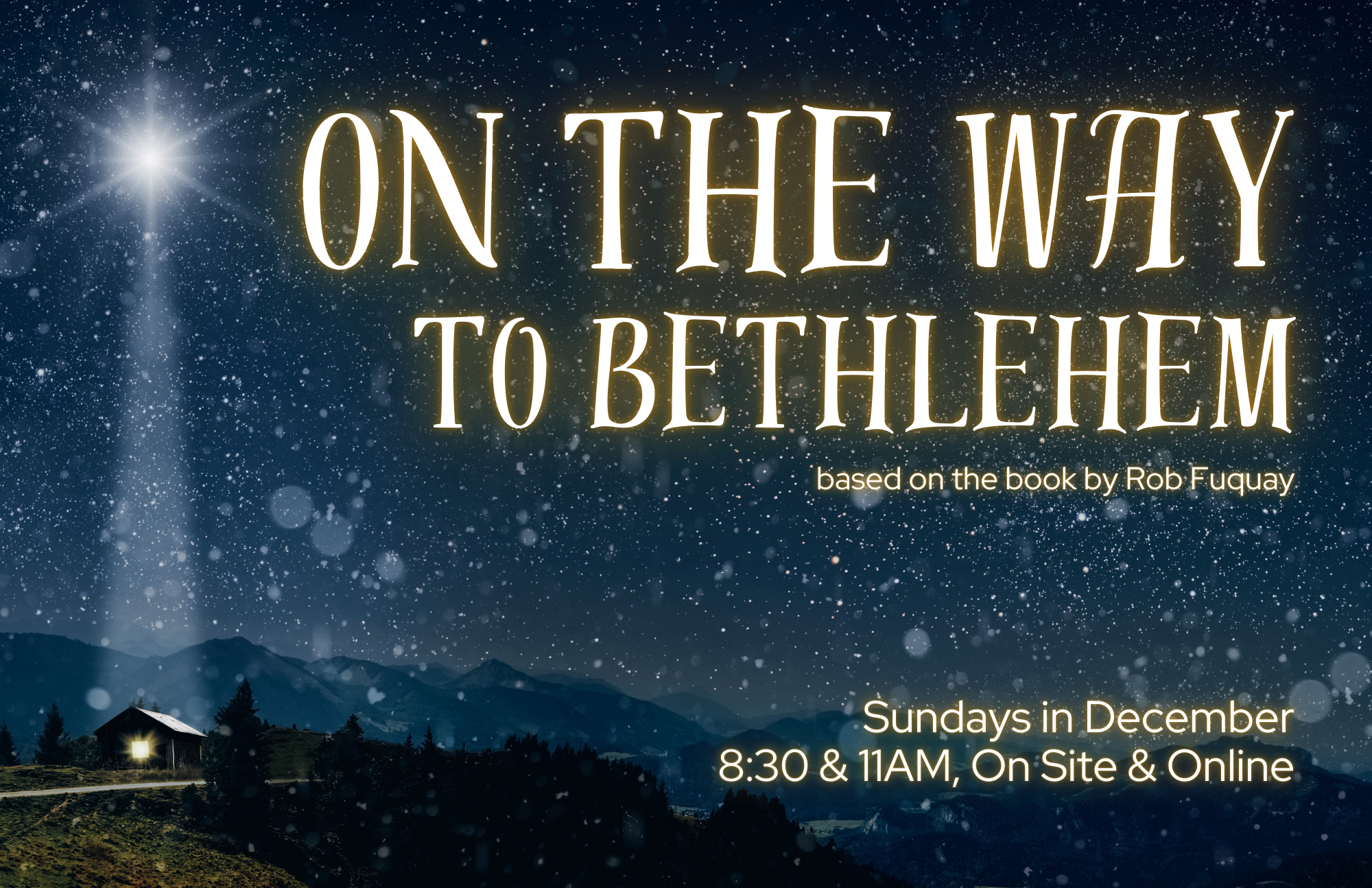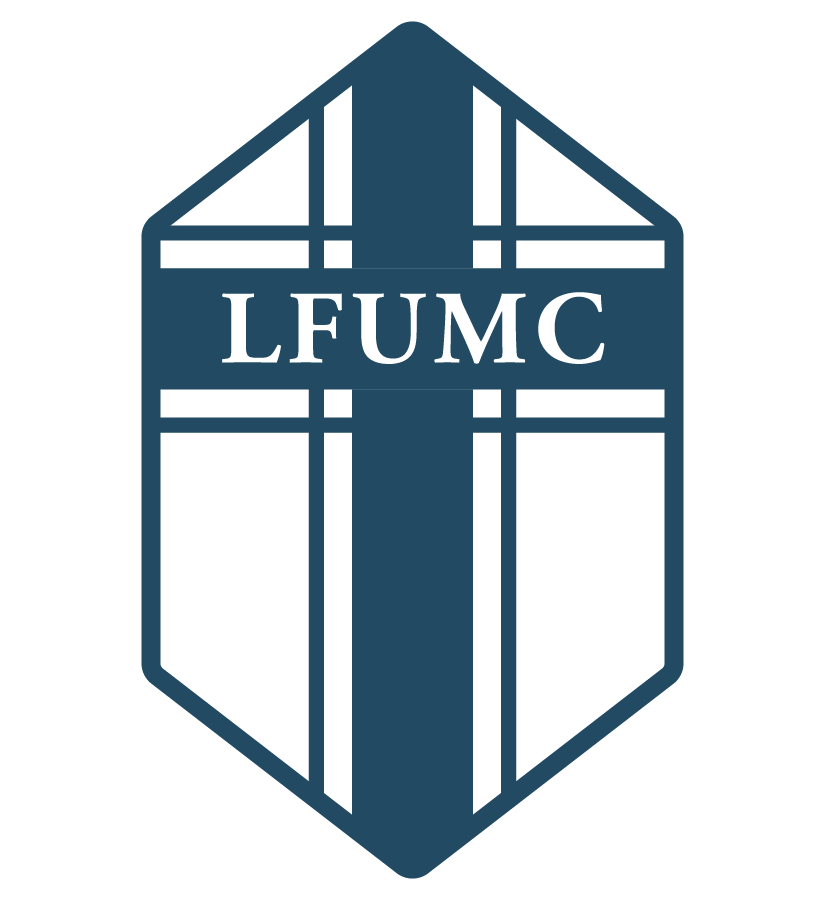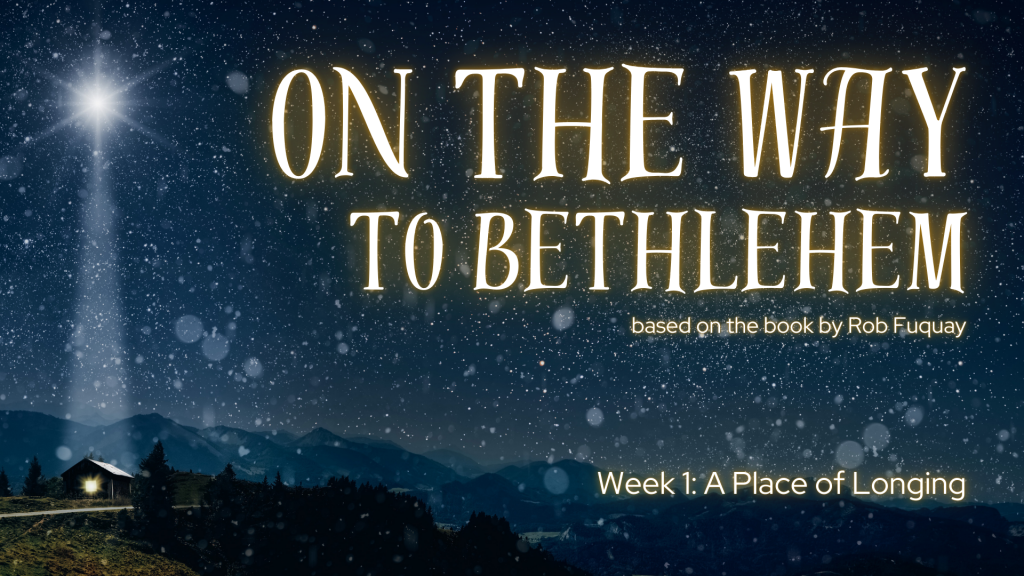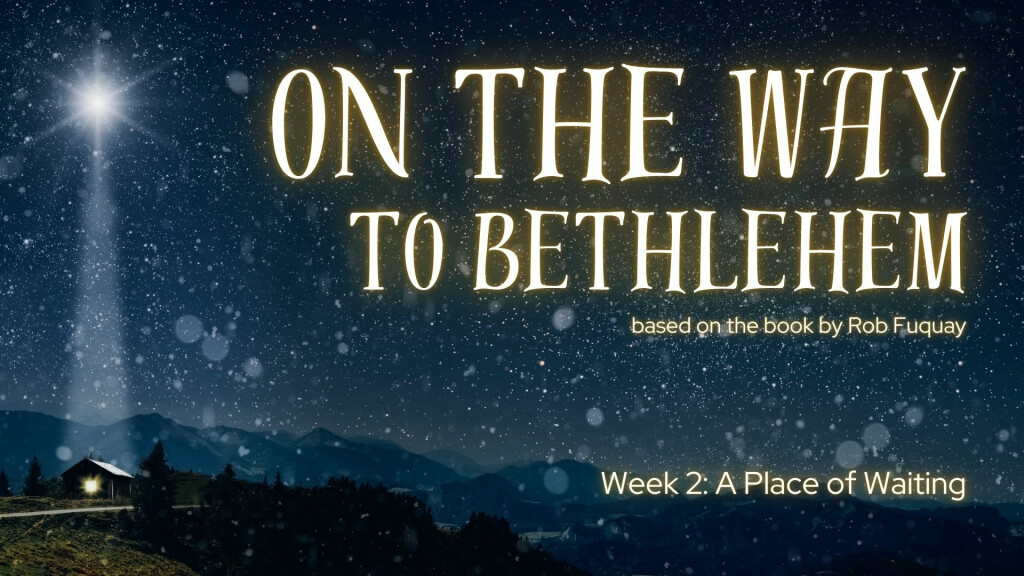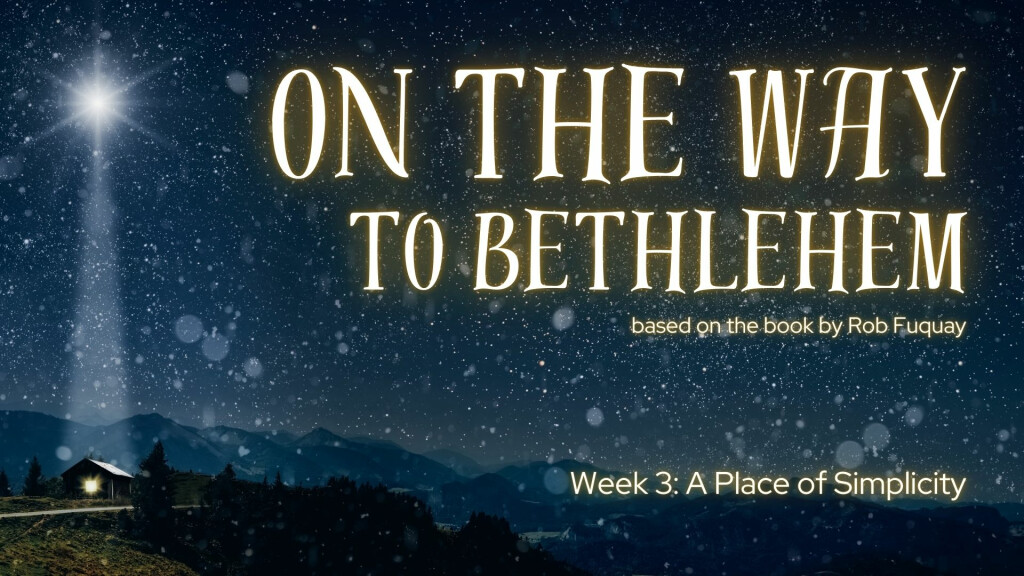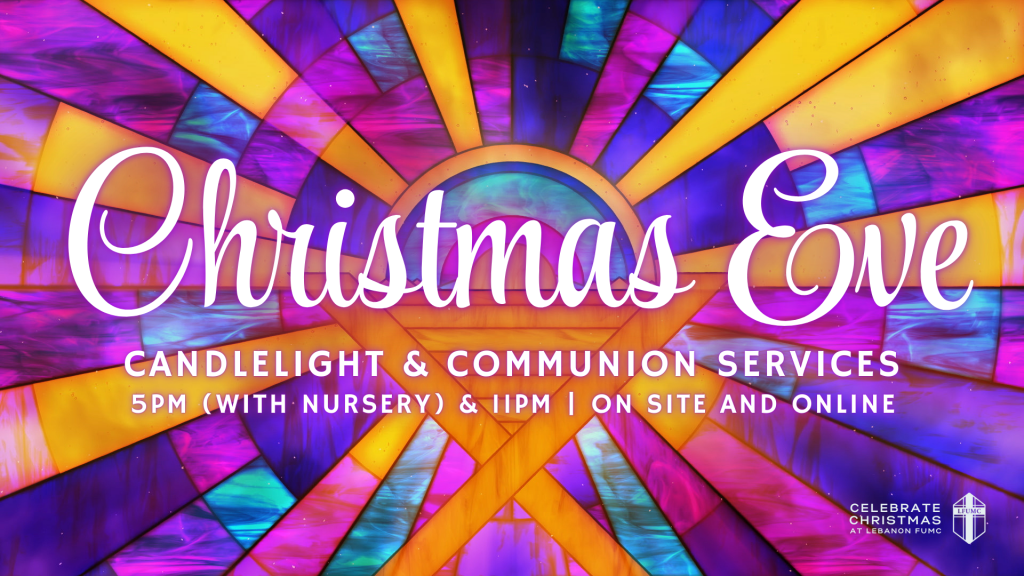December 08, 2024 | Ryan Bennett
Passage: Luke 1:5-17
Some of you may be surprised to learn that I am at times not a very patient person. (PAUSE FOR SHOCK AND AWE OF THIS STATEMENT). In fact, if I was playing one of those silly games you see online that says something to the effect of TAKE THIS SURVEY TO DETERMINE WHICH CHRISTMAS SONG BEST DESCRIBES YOU, it would probably be that song that says YES WE NEED A LITTLE CHRISTMAS . . . RIGHT THIS VERY MINUTE. Those who know me know that, once I know what the best direction is, I begin charging in that way. I’m not generally good at waiting for things to come my way. Because of that, one of my spiritual disciplines is to try and get up before the rest of my family and sit in silence. It is something that is very challenging for me. There are times when I find myself checking the clock to see how long I have been doing it. That’s silly, right? It runs against the purpose of trying to sit still in silence, to time how long you are supposed to do it. It is the equivalent of rushing through the time of slowing down. But I am learning. I am still a project. But I have begun to learn to appreciate the stillness and the quiet and as I do it more, I am able to still myself and free my mind. But that can still be hard, especially when there are things to do, when there are expectations and anticipation of what may be coming. Just ask a child right now how it's going waiting for Christmas to get here - and it will only get harder as Christmas gets closer. But you can also ask a person who is having tests run to determine if they have cancer how hard it is to wait for the results to come back. Waiting can be hard.
Today as we journey to Bethlehem, we are moving over 1400 miles closer to Bethlehem from Rome to Jerusalem. In order to understand the significance of Jerusalem, we have to understand the importance of the Temple. There’s obviously more history than I have time to share here, but King David’s son, Solomon built the first Temple in Jerusalem as a place to house the Ark of the Covenant which housed the 10 Commandments. The very center of the Temple was called the Holy of Holies and housed the Ark of the Covenant. The Holy of Holies was the place where GOD LIVED. The Temple was the hub of Jewish religious practice and faith. The Temple was destroyed in 586 BC by the Babylonians then rebuilt later in 515. This second temple was not nearly as impressive as the first, which left many underwhelmed by it. King Herod whom we talked about last week—the guy who wanted to kill Jesus as an infant—rebuilt the Temple closer to its original standards, more of an awe-inspiring structure. He did this to impress Rome and also build goodwill for the territory he ruled over. He really did it for himself. The structure he built was roughly equivalent to 24 football fields, a massive structure.
Jerusalem, in particular the Temple, is critical to the story of the birth of Jesus. Here’s why: there was an elderly priest there by the name of Zecheriah. He and his wife Elizabeth were righteous people who loved God and were faithful to him their entire life. What we learn about them in our text today is that they were OLD and BARREN. Barren means not only that they were without children, but it is also an emotional and spiritual description for the toll that not having a child took on them. They were dry. They had given up hope. This doesn’t mean they had lost faith, but it does mean they had given up hope, resigned themselves to the fact it would never happen.
An interesting duty of the high priest was that a select few of them were able to go into the Holy of Holies and clean out the ashes and replace the incense. A priest's name was drawn by lot and given this once-in-a lifetime opportunity to do this. It was the highest honor a priest could receive. They could only do it once, and they only had a 1 in 600 chance of being drawn over the course of your entire life. It was that rare. In our text for today, we see Zechariah’s name had been drawn. It was his big chance - a chance of a lifetime late in his life. While performing his duty, the closest a person would ever be to God, alone in the quiet of the moment, an angel appeared to him in the Holy of Holies, told him not to be afraid (which I'm sure was ignored) and then on top of that he gave him news that would floor him: in your old age, you are going to be a father. This was met with disbelief, and the angel said to him because you do not believe me, you will be unable to speak until these things occur.
Think about the whirlwind of emotions. Zechariah and Elizabeth had been unable to have children and had longed for that their entire life until finally giving up on that and resolving themselves to the reality that this would not happen. Then, late in life, Zechariah gets the honor of a lifetime to do his priestly duties in the holy of holies only to be greeted by an angel of the Lord that scares him to death, followed up by the statement that their prayers have been heard and they are going to be parents. Then, as he is processing all of this, he expresses how overwhelming it all seems and is struck mute; he can’t talk until the day the baby is born. Zechariah had waited his entire life for something only to give up that it would happen. Now that he has been told it will, he has to be silent and wait some more.
I understand just a bit of what he had gone through. I understand what it is like to want to be a parent and be unable to. I understand what it is like to wait and wonder if it will happen. I know what it feels like to get exciting news out of the blue that you are going to be parents, and to be speechless as they say come meet your son NOW. It is all overwhelming.
As we move from Rome to Jerusalem we move from a place of longing for the things that are not right in the world to a place of waiting. Jerusalem is a stop of indefinite length because you do not know how long you will be there, you just know it will be longer than you like.
Sometimes that waiting is a desire to hear from God. Waiting is not easy to do, but it is a spiritual activity. On this Advent journey, Jerusalem teaches us how to deal with our longings in a better way. It teaches us the importance of waiting. When we read the Bible, we see that things happen not when the people want them to happen but they happen in God’s perfect timing and for God’s purposes. Thus, it requires us to wait.
The author of the book quotes John Ortberg as saying “What happens in us while we wait is as important as what we are waiting for.” The author puts it another way: what God does in us while we wait is as important as what we wait for.
Jerusalem is historically a place where people go to pray, where they go on a pilgrimage to feel close to God, but it is also a place of waiting. We wait for God to respond in the midst of the pain and brokenness and hurt and hopelessness that we feel. Jerusalem is that place where God changes us, bends us more to his will, it is that place where God works in our lives and restores our soul, our hope.
A big part of the season of Advent is found in Jerusalem - the four weeks of waiting for Christmas which allows us to have God work in our hearts and lives.
But church, here is the caution that we have to acknowledge: it requires us to still and silence ourselves because I don’t think an angel is going to strike us mute today. We have to do it ourselves in a season that seems to get busier and noisier. Jerusalem teaches us that to wait means to be still and know that he is God as the Psalmist wrote.
We know that that baby was born and they named him John and he was a prophet who preceded Jesus offering a message of repentance and forgiveness of sins, calling people to prepare the way for the Lord, make straight his paths. When Mary came to see her cousin Elizabeth, both pregnant with child, John lept in his mother’s womb and she was filled with the Holy Spirit. When Jesus was beginning his ministry, he went to John to be baptized.
Rome was a place of longing but our longing can often go unmet. Jerusalem is a place of waiting where we have hope that God will deliver. Jerusalem reminds us that God can be trusted in our lives and with those most painful and tender places, and that God will work it all for God in his perfect time.
Thanks be to God
AMEN
Series Information
